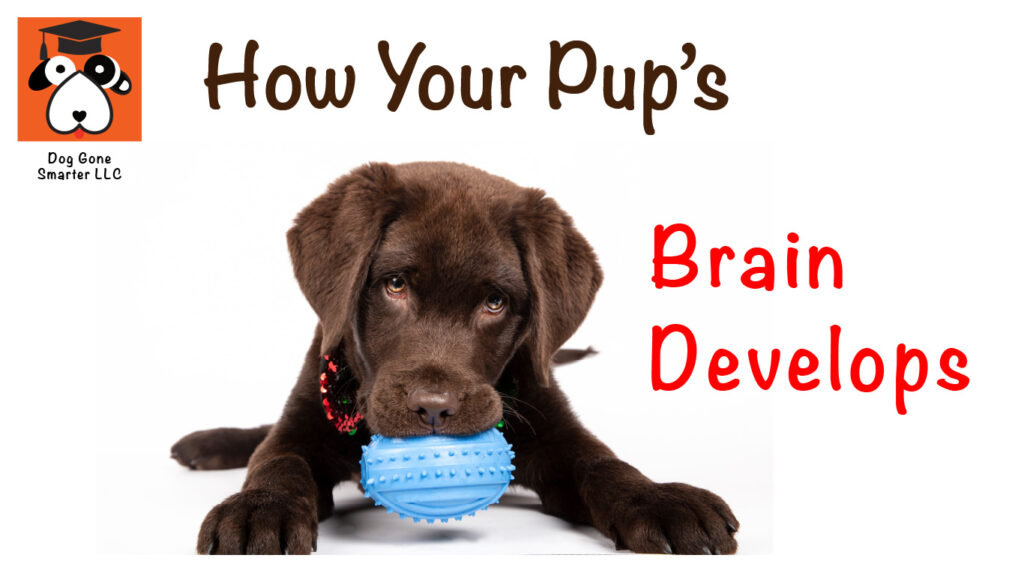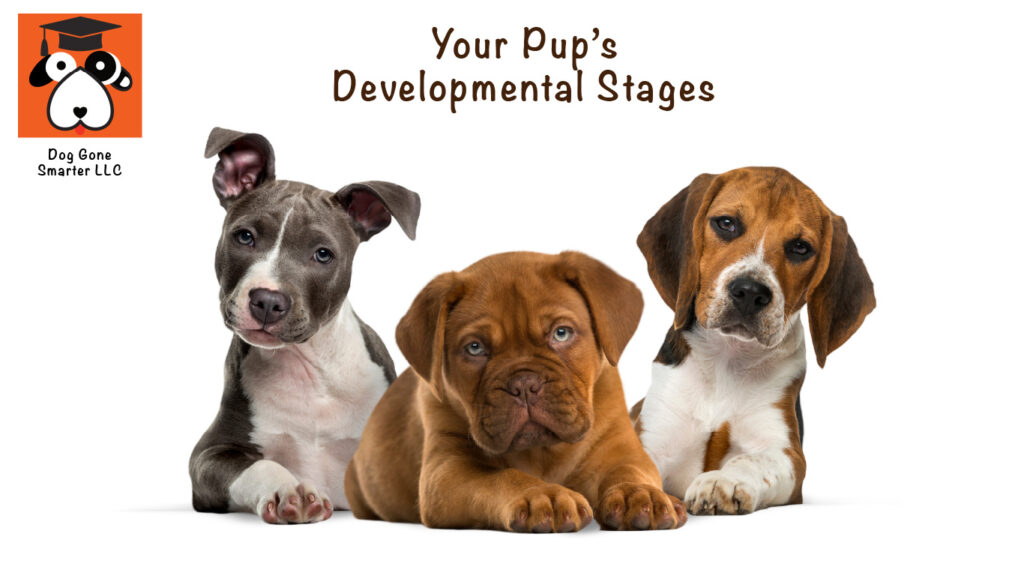
 our pup goes thru several distinct developmental phases as he grows.
our pup goes thru several distinct developmental phases as he grows.
The newborn phase, also known as the neonatal phase, is from birth to 2 weeks old. It’s a time when your puppy seems to-do little more than sleep and eat all the time.
Although it might not appear that much is going on “in there,” well-sourced research indicates that a puppy’s nervous system is quite active, malleable and impressionable during this phase.
After two weeks of age, puppies begin the transitional period. This period lasts till the pup is 21 days old, and is a time when learning really kicks in. Even at this early age when their eyes are just opening, pups will respond strongly to positive reinforcement.
After puppies are three weeks old, they enter a crucial socialization period. At this point in your pups development, your pup is able to smell, taste, touch, feel, see and hear.
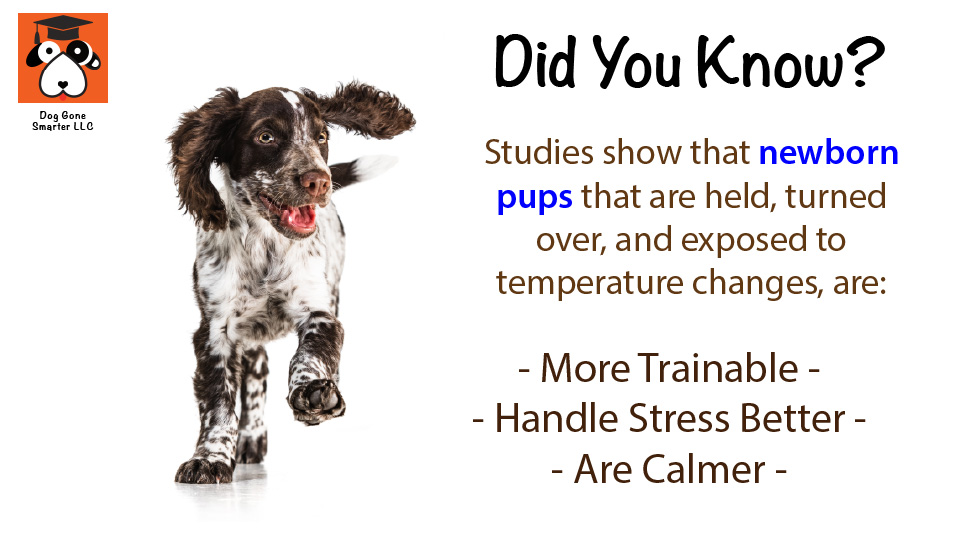
It is during this socialization period that pups begin to seek out odors and noises, as they begin tasting, biting and interacting with their environment. During this phase, exposure to the environment is key to your pup becoming less fearful as an adult.
During what is called the first fear period, from approximately eight to 10 weeks, pups are often removed from their homes, separated their moms, dads and littermates. They arrive in their new home and they have to contend with potty training rules, new family members, scary visits to the veterinarian.
It’s important to keep all of your new pups experiences as positive as possible. Remember, your pup is learning 24/7 – whether you are actively training him or not.
During this first fear period, it is a good practice to watch keenly for signs of fearful experiences and behavior. Although some pups may experience fear and then overcome it, some pups become stuck and are unable to recover from their fears on their own. These pups would greatly benefit from a dog behavioral consultant or trainer.
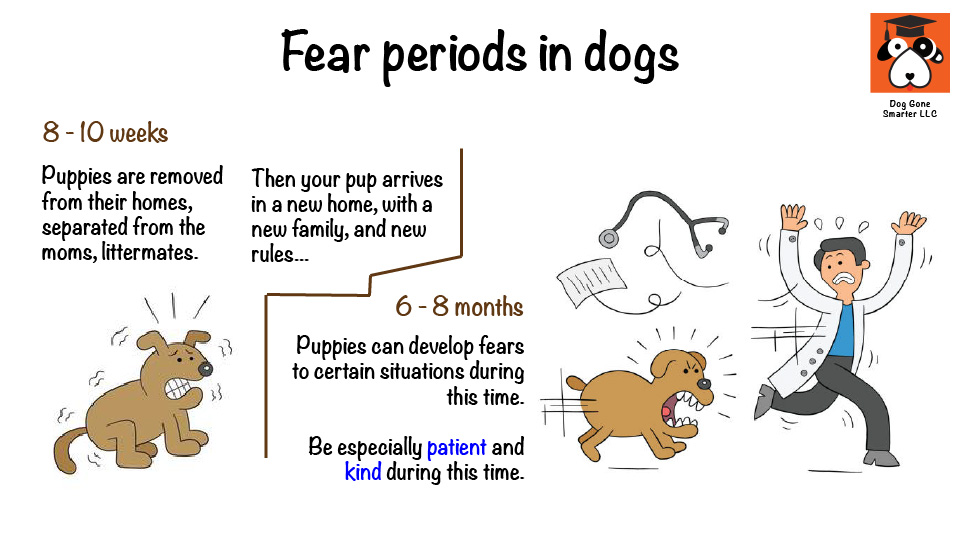
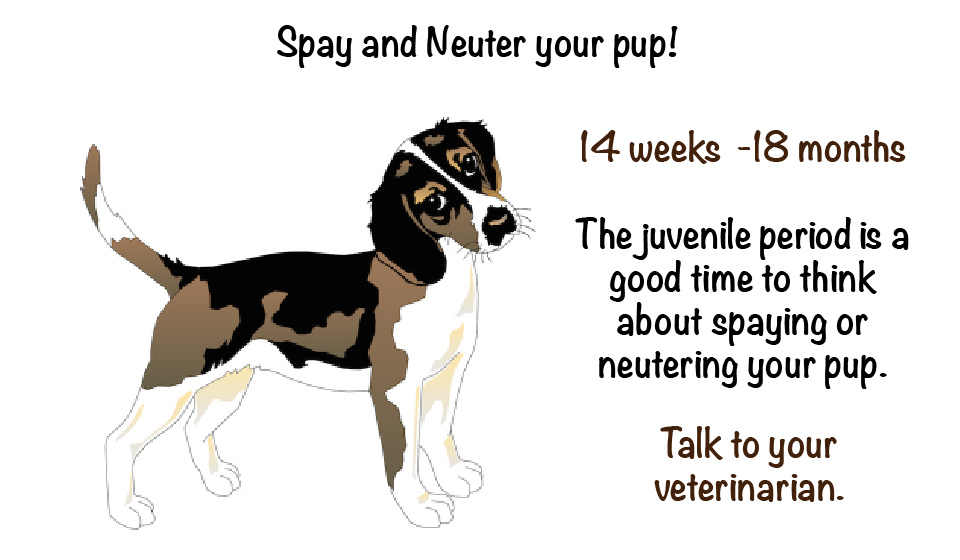
The juvenile period is from 14 weeks to 18 months and is when your pup will start to mature sexually. This is a good time to have a conversation with your veterinarian about when is the best time to neuter your pup.
Many veterinarians suggest a longer maturation period before neutering certain breeds – especially very large breed dogs such as Bernese Mountain dogs.
From 6 – 8 months of age, your pup will be in his second fear period, with smaller dogs experiencing this phase earlier than larger breeds.
Be patient and kind and engage with quality training, dog sports, agility and nose work classes to help build your pup’s confidence.
If your dog’s fear responses do not readily subside, discuss your concerns with a behavioral consultant.
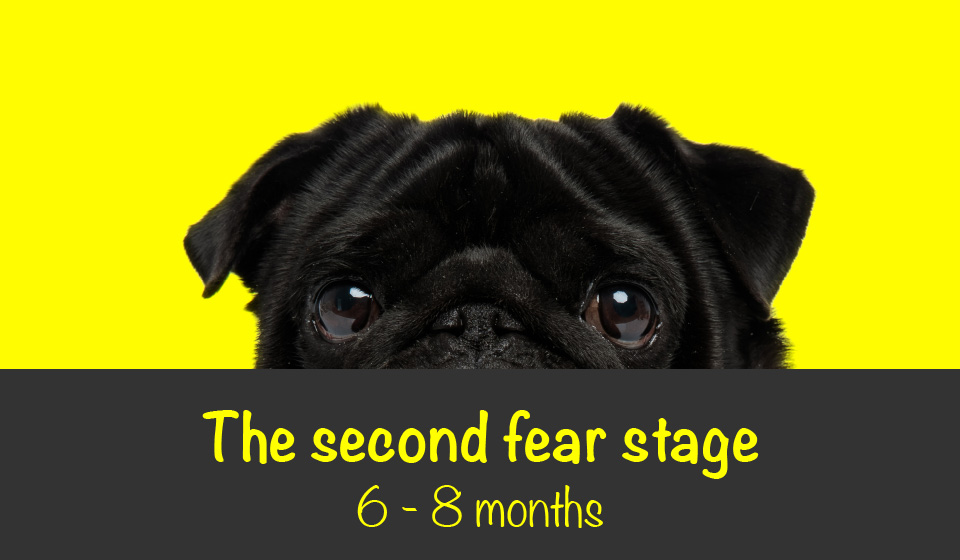
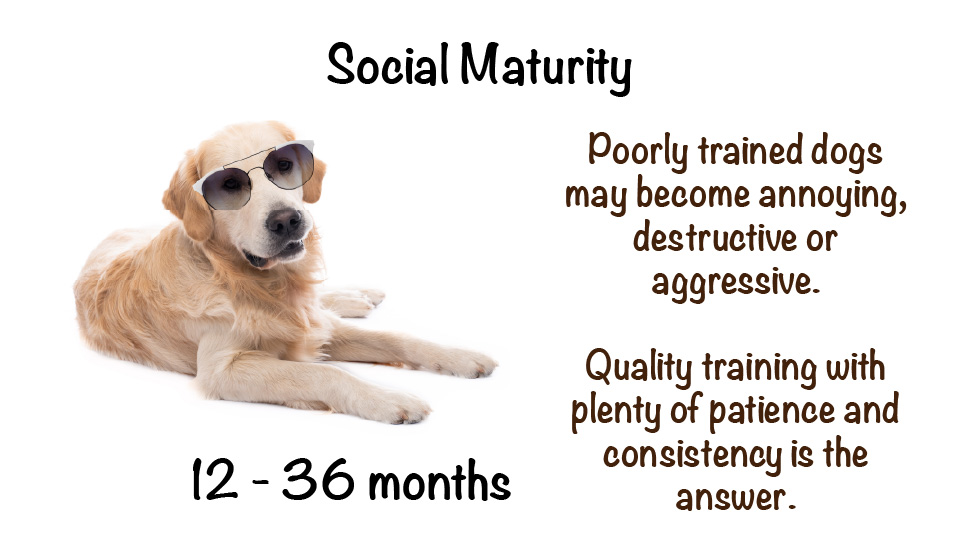
Although your pup may look mature after about 9 months, your pup will continue to develop both physically and emotionally for many more months.
As your pup continues to grow and mature, he will soon enter social maturity – with adult behavior usually emerging between 12 and 36 months of age.
- – Erik Muenker
Master Dog Trainer
Dog Gone Smarter LLC


